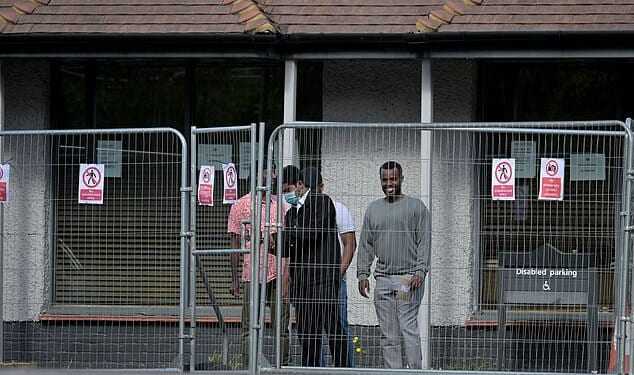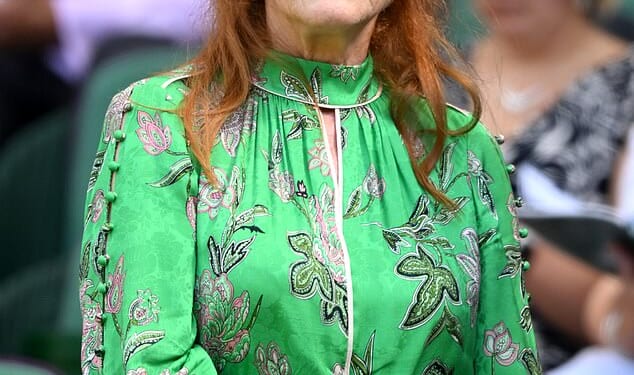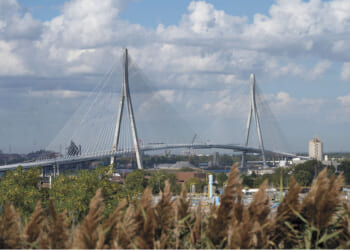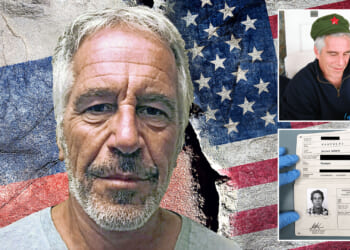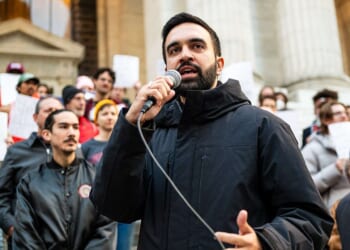Small boat migrants housed in asylum hotels are having babies because they think it will boost their chances of gaining a British passport, a new documentary has revealed.
Asylum seekers told the programme they were having children in the belief it would automatically ensure the mother and baby both secure the documentation, a hope the show insisted was ‘misguided’.
‘They do believe it gives them more entitlement to benefits, maybe better choice of accommodation and make it harder for the Home Office to deport them,’ BBC reporter Sue Mitchell said on the documentary.
‘One of the first babies I meet is proudly held aloft by his father – they arrived from Somalia just weeks earlier and he tells me this is a “British baby”, born on “British soil”, who will one day, he believes, hold a British passport.’
But asylum seekers who have children in the UK can still be deported by the Home Office, although the Refugee Council’s Jon Featonby insisted they qualified for extra safeguards which make this harder.
Elsewhere in the documentary, which saw Ms Mitchell visit four hotels for the BBC’s File of Four programme, migrants described being sent hundreds of miles by cab for NHS appointments, at a huge cost to the taxpayer.
A failed asylum seeker in an unnamed hotel used by the Home Office told the BBC he had been sent on a 250-mile, £600 taxi ride for a knee check-up.
Home Secretary Shabana Mahmood asked officials to ‘urgently look into’ the use of taxis after the claims emerged.
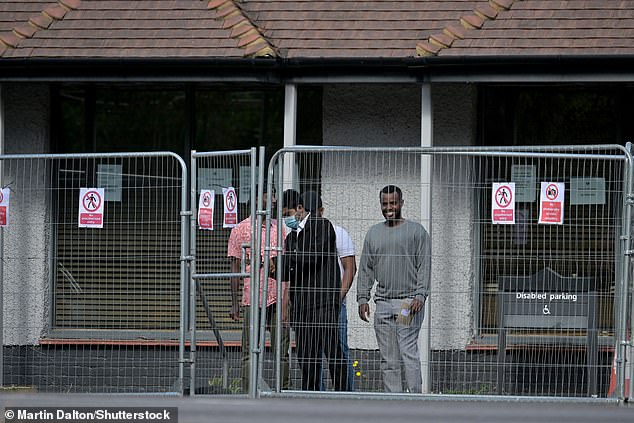
Migrants housed at Epping’s The Bell Hotel, pictured this month. Asylum seekers housed in hotels are having babies because they think it will boost their chances of gaining a British passport, a BBC documentary has revealed
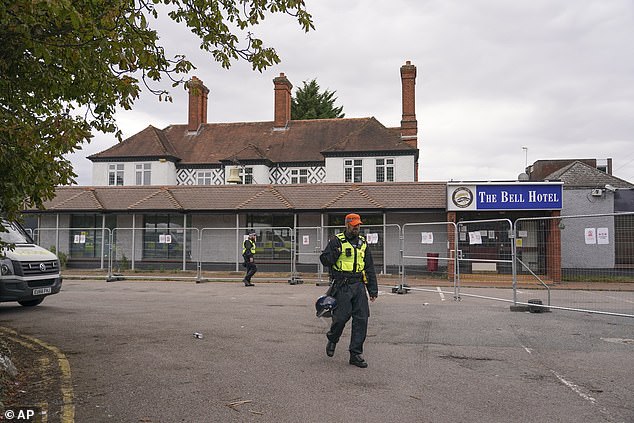
The Bell Hotel in Epping, Essex, became a focus for anti-migrant protests last month
Other migrants in hotels visited by the broadcaster said they were working in Britain, despite being barred from taking employment.
One Iraqi man, identified by the pseudonym ‘Kadir’ to protect his identity, said he would have preferred to have gone to his NHS appointment by train.
But he ‘had no choice’ other than to accept the transportation laid on by the Home Office.
The taxi journeys take place because when migrants move between hotels they sometimes keep the same NHS doctors, the broadcaster said.
Kadir’s journey was to see a consultant who had treated him at his old address, he said, and the driver told him the round-trip had cost £600.
‘Should the Home Office give me the ticket for the train? This is the easy way, and they know they spend too much money,’ said Kadir.
‘We know as well, but we don’t have any choice. It’s crazy.’
Migrants were not offered the option to travel by public transport, or to walk, to the appointments and taxis were booked by an ‘automated system’ at the hotel front desk, it was reported.
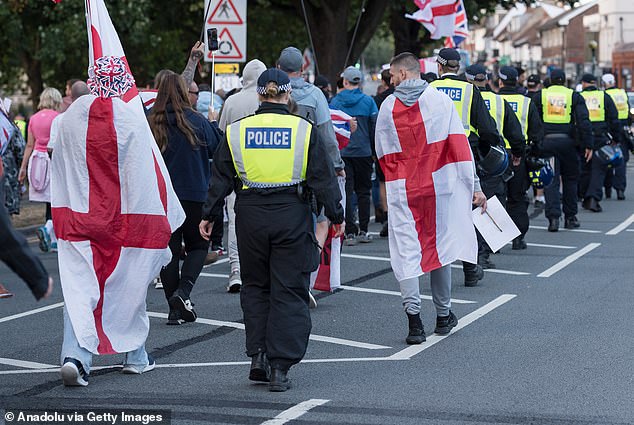
A migrant accused of sex offences in Epping sparked protests about the use of the hotel last month. In a separate development, the migrant has been sentenced today.
Kadir and his wife had two children when they arrived in the UK from Iraq nine years ago and have had a third since being here.
The family occupies two adjoining hotel rooms – one for the couple and their baby, and the other for 12-year-old daughter and 14-year-old son.
Kadir said he worked as a translator in his home country and claimed he had been targeted by criminals.
His asylum claim was rejected by the Home Office due to lack of proof. He has had two appeals rejected, and has a third appeal underway.
He added that some migrants he knew had converted to Christianity in a bid to increase their chances of staying in the country.
They claimed the religion change would lead to persecution if they went back home.
A woman from Iraq also claimed she paid people smugglers to cross the Channel in order to get treatment for her stage four cancer.
Mohammed, from Afghanistan, said he had arranged a job even before he arrived in the UK a few weeks ago.
After using contacts provided by his cousin, who was also working illegally in Britain, Mohammed said he was earning £20 a day for shifts that last up to 10 hours.
He told the BBC he had no choice because his family owes money to people traffickers.
One security guard at one of the hotels said: ‘You’ve got nothing to occupy these guys. So of course they’re going to go out there and work.’
Journalists and the public are barred from Home Office migrant hotels but the BBC said it had ‘gained access through migrant contacts who had made the journey across the English Channel from France’.
Ms Mitchell added that she had chatted to families who has been waiting in the country for almost a decade for their cases to be ruled on.
Migrants interviewed on the programme also admitted doing black market jobs, with some paid as little as £20 for shifts of 10 or 11 hours.
Arrivals have previously secured asylum by arguing deportation Article 3 rights under the European Convention on Human Rights, which protects against persecution and torture.
Many of these jobs had been arranged before they even crossed the Channel, with money sent back to the asylum seekers’ home country as soon as they were paid.
At the end of June there were just over 32,000 in taxpayer-funded hotels, up eight per cent in a year.
The Home Office has also said an all-time high of 111,084 asylum applications were lodged in the year to June, up 14 per cent on the previous 12 months.
Despite increasing numbers, Labour has said it will close all migrant hotels by 2029.
In August Epping Forest District Council won a temporary High Court injunction to stop migrants being placed at The Bell hotel, in Epping.
But the Home Office successfully challenged the decision at the Court of Appeal, and the hotel remains open pending any further legal action.
The amount of taxpayer’s money spent on asylum support fell to £4.76billion in 2024-25, down from £5.38billion the previous year.
But costs are massively higher than a decade ago, when the figure stood at less than £475million a year.
A Home Office spokesman said: ‘The Home Secretary has asked the department to urgently look into the use of taxis to transfer asylum seekers.’

